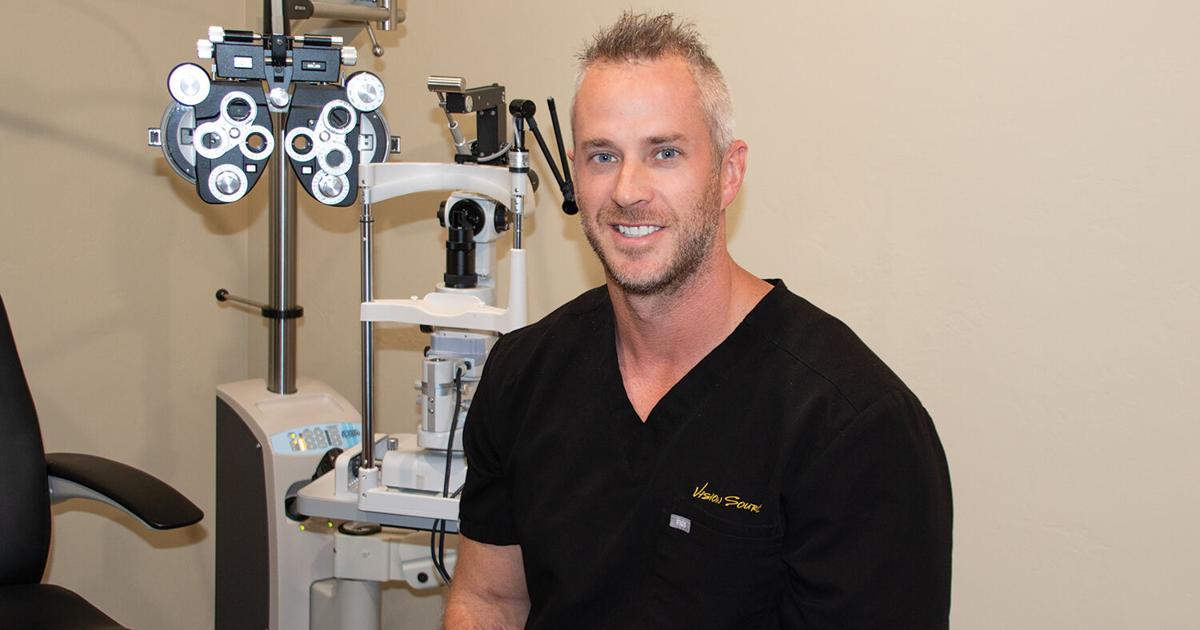
“Yearly eye exams are important not only for vision but also because they can provide a window into a patient’s systemic health,” says Michael Gaydos, O.D., owner of Vision Source Owasso. “This is especially important for people who don’t keep up with annual visits to their primary care providers.”
Routine eye exams can spot ocular maladies like uncorrected refractive error and binocular vision issues. Ocular health issues such as dry eye syndrome and cataracts are common as a person ages. Some ocular problems, such as glaucoma, progress so slowly that a patient not routinely checked by an eye care professional may not notice the loss of vision until it is at an advanced stage.
Optometrists and ophthalmologists also can play a key role in detecting non-ocular maladies through routine exams. “We’ve spotted everything from hypertension and diabetes to a brain tumor and stroke as part of our routine work up,” Gaydos says.
Ideally, routine eye exams should begin at 6 months of age and continue every one to two years, depending on visual needs. Patients over 50, because of their risk for diseases such as glaucoma and cataracts, should be seen annually.
While aging is unavoidable, Gaydos says there are ways to proactively help keep one’s eyes healthy.
“Eating leafy greens and maintaining a healthy lifestyle are the best ways to keep eyes healthy,” he says. “There are many over-the-counter vitamins that are based on scientific study and can be helpful to supplement what is not in a patient’s diet. Look for vitamins based on the AREDS 2 study.”
Additionally, for alleviating eye strain and potential prescription progression, Gaydos recommends maintaining a well-lit reading environment and taking frequent breaks.
He also recommends the 20-20-20 rule.
“Every 20 minutes of screen time or near work, take a 20-second break and look at something at least 20 feet away,” he says. “It also helps to make sure you’re blinking regularly as silly as that may sound. Lack of adequate blinking can lead to severe dry eye issues over time.”
He continues, “Even if you think you are seeing well, there are still major benefits to keeping up with annual visits, not just for your vision but potentially your overall health as well.”
